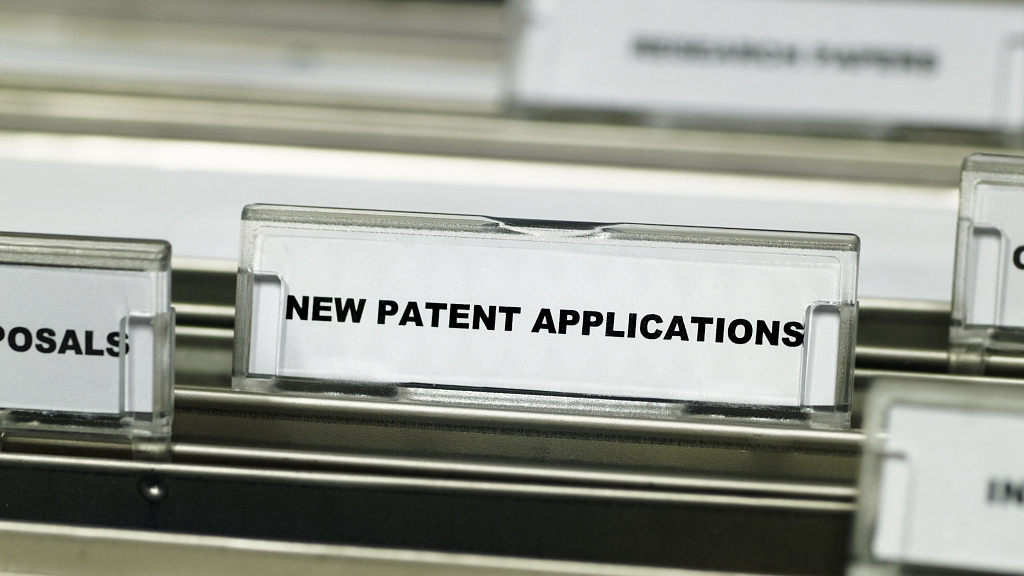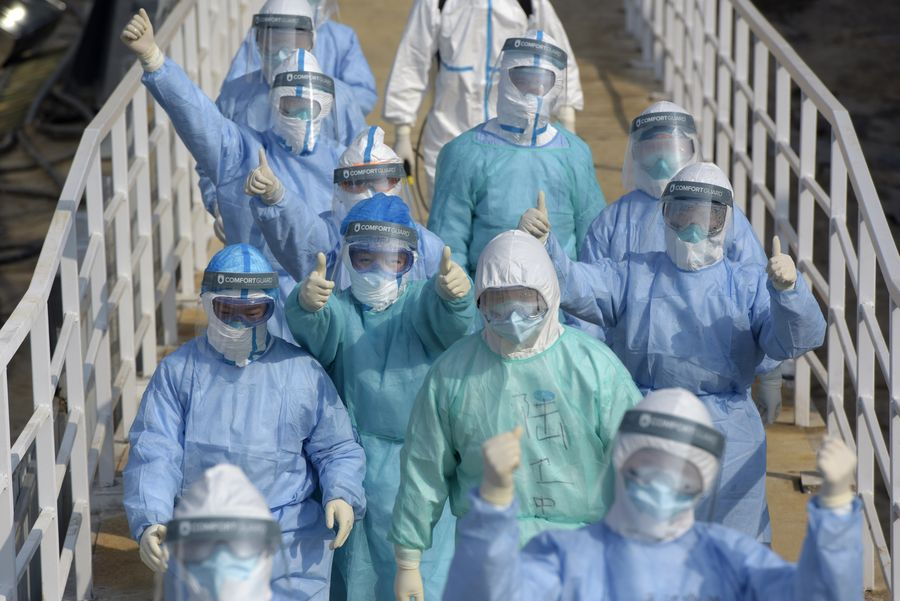
Editor's note: Sun Yang is an associate professor of China University of Political Science and Law. This article reflects the author's views, and not necessarily those of CGTN.
Fighting the widespread outbreak of 2019-nCoV became a major concern for the world, so it calls for state-of-the-art technology in the field of public health and medication.
Currently, the WHO has declared the need for global urgent support to protect vulnerable countries from the disease due to the lack of necessary medical equipment and resources. Unfortunately, this humanitarian proposal may encounter undesirable situations when developed countries insist on domestic patent system with licensing mechanisms.
The underlying logic follows that state-of-the-art medical technology is mostly granted as patent in developed countries by a long-term business strategy in private enterprises or sectors. With significant amount of investment on research and development, it is no wonder patent holders seek to recoup financial benefits through patent licensing.
Under the circumstances, patent holders are reluctant to license their invention outside the patent system. Domestic patent law in various jurisdictions generally respect the patent rights and cautiously provide exceptions to actual patent use without authorization. Consequently, most countries lack the inherent incentives to promote humanitarian cooperation, such as the proposal initiated by the WHO.
The international Intellectual Property (IP) treaty, primarily the Trade Related Intellectual Property Rights Agreement (TRIPs), provides an effective guideline for individual member states to reconcile the unauthorized use of patent medicine and the licensing mechanism by patent holders.
The TRIPs set forth that unauthorized use of a patent is principally permissible under statutory conditions. Article 31 (b) provides "unauthorized use of the patent by a member state government or third parties authorized by the government may only be permitted in the case of a national emergency or other circumstances of extreme urgency."
It turns out that a member state of TRIPs without patent search or knowledge on patent validity could use the patent without permission so long as the right holders are promptly informed and duly paid.
The TRIPs open a gateway to promote the control and eradication over the coronavirus through international IP treaty. Despite domestic patent law trends to exclusivity and preclusion, not a single country currently has full capability to develop one-fits-for-all medicine to the outbreak.
In other words, joint research on anti-coronavirus medicine and the plan of patent cooperation should be on the agenda for all member states. The expectation of cooperation roots in a civilized society.

Medical personnel pose for a photo at Huoshenshan (Fire God Mountain) Hospital in Wuhan, central China's Hubei Province, February 4, 2020. /Xinhua Photo
Medical personnel pose for a photo at Huoshenshan (Fire God Mountain) Hospital in Wuhan, central China's Hubei Province, February 4, 2020. /Xinhua Photo
The TRIPs answer the question of how to reconcile patent licensing and unauthorized use with respect to substantive IP rights. The Patent Cooperation Treaty (PCT), on the other hand, pinpoints the incentives to the cooperation for all countries globally. The PCT regulates international patent application through a one-fits-for-all system in order to facilitate all patent acquisition among member states.
In the course of a domestic patent application, a patent applicant usually concerns the novelty of his or her patent claims. The existence of prior art or prior design undesirably defeats their application. Sharing and mutual communication of focal technology usually lead to the issue of the prior art, which eventually disqualifies the validity of the patent.
Consequently, independent research and development by private sectors dominate the patent process. To sidestep the risk of invalidity, mutual sharing and communication of technology generally are discouraged in the patent system before a patent is granted.
As the coronavirus wreaks havoc globally, multiple countries race to develop viable vaccines and medicine. To better secure national interest and economic value, the patent system is the best available option. The domestic patent system operates under the "first-to-file" principle. Such statutory design precludes the likelihood of ex-ante cooperation.
The PCT encourages the sharing and communication of patent information through the "Foreign Priority" provision for better improvement on a designated patent. A patent applicant in a contracting country could initiate the foreign priority during his or her application, which provides an additional one-year period to deny prior art or prior design that may disqualify the novelty of their patent claims.
Under the circumstances, the research fellows on certain technology do not need to concern the issue of patent novelty and would have incentives for technology sharing and communication. Such policy designs to generate high-quality patent for usefulness, especially for viable medicine and vaccine against the coronavirus.
IP law emphasizes on interest-balancing theory. Domestic IP statutes enact to serve the benefits of right holders and indirectly raise the threshold on the widespread use of indispensable technology.
When such technology meets emergent public demand such as the outbreak of coronavirus, the domestic patent system lacks the capability to reconcile the use of technology and the protection of a patent.
The international IP treaty encourages the necessary use of crucial technology and provides viable incentives to joint research in the event of a globally emergent situation. The statutes clarify the general guidance for international cooperation in accordance with the interest-balancing theory.
The outbreak of coronavirus challenges our civilized society in all aspects, and our society calls for international cooperation. With clear and convincing guidance, it is time for actions rather than words.
(If you want to contribute and have specific expertise, please contact us at opinions@cgtn.com.)